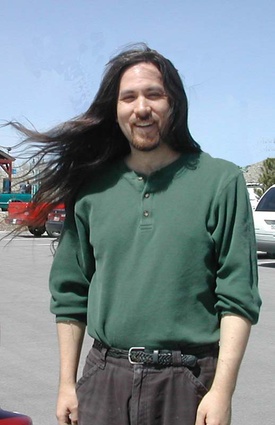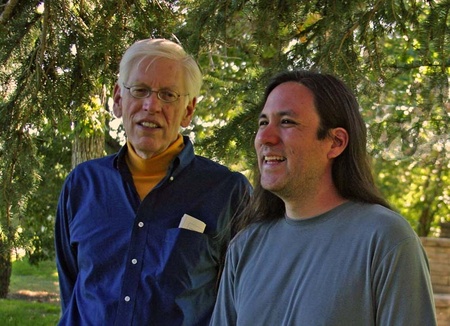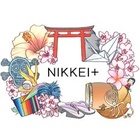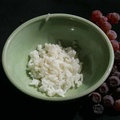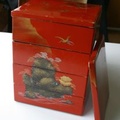When my son Michael was in high school he was approached by a group of young Navajo men who asked him, “What tribe you from, brother?”
“Tribe?” he replied, puzzled.
“You look like a Dine from Shiprock.”
“Shiprock?”
“Yeh, you know, you guys from Shit Rock.”
When they slowly started toward him he backed away. “I’m not from Shiprock. I don’t even know where that is,” he said.
“Don’t know your own nation, brother?”
“You’ve made a mistake. I’m not Indian.”
“Indian? We’re not either. Those guys live in India. We’re not from India.”
“I mean Indian American.”
“Native American, brother, Native American.”
When Michael came home and related this incident to me I quipped, “That’s because you’re happa and don’t look like either your dad or me. You’re in-between.”
“And ‘happa’ is…,” he asked.
I explained to him that it was actually a derogatory term that I had heard my parents use which meant “half and half.” Even in the ‘70s the Japanese thought that the Japanese should marry only Japanese and not dilute the purity of their blood. Sometimes as a child I would hear them whisper about a happa ainoko, a love child. There was always something dark and secretive about such a union.
So, dark and secretive it may be to my mother and Issei, but my husband is of Scandinavian background—Norwegian and Swedish, mostly (blond and blue eyed)—and considers himself American. He never explains himself to be Norwegian-American. Just American. I am ethnically Japanese—my father from Wakayama, my mother from Hiroshima—and I was taught that I was Japanese-American. Never forget that: you are Japanese-American, not all American.
This, of course, caused all sorts of confusion on questionnaires which required me to identify racial background. There was no space for “Japanese-American.” It was either “Asian” or “American.” I usually ended up either marking “Asian” or penciling in “American” after “Asian.” Not once have I ever been questioned about this addition. I wonder if anyone ever read the lines, or whether they eliminated it.
Then, of course, I began to wonder why racial origin matters at all. I have never had an answer to this question. Does it matter if you are Japanese, American, Indian, Alaskan, Chinese, Hawaiian? Apparently it still does. The question still appears on applications of all sorts.
Michael, too, was puzzled by this same question. He is racially half and half, not ethnically as I was, but there was always the same basic hesitation—which race do I check? What race am I?
Sometime in the near past Hawaiians dropped the second “p” and began to identify happa people as “hapa,” actually “half” in Hawaii. Easier to say, too. The term has now become accepted usage. I looked up “happa” in my Japanese dictionaries but it is not listed in either the Sanseido or Crown nor the Kenkyusha. I tried “hapa.” Another blank. I asked a friend in Japan and was told that the term used in that country is “hafu,” the Anglicized word “half.”
Further investigation into Google lists “hapa” in conjunction with other Hawaiian terms to denote a refinement of racial meaning. For instance, “hapa ‘inikiki’ Amelika” is part Native American, hapa popolo is part African/black, hapa kepani is part Japanese, hapa pilipino is part Filipino. Personally I have never heard any of these combined terms used. I may suggest to Michael that the next time he is asked about his racial background he might reply, “I’m hapa kepani” or “hapa kepani Amelika.”
Most of the time when people ask me (yes, they still do) “Where are you from?” I tell them “Salt Lake City.” The inevitable next sentence is “Yes, but what country are you from?” I tell them I was born in Los Angeles. “Oh,” they might insist, “but where were your parents from?” Or else they might exclaim, “No wonder you speak English so well!” I am tempted to add that I taught English in high school for 13 years—but I hold my tongue, unwilling to start an embarrassing dialogue.
I suspect that in a coastal city like Los Angeles, San Francisco, or Seattle where the Japanese community is much larger than Salt Lake City, questions such as this are fewer. The questions reveal a naivete regarding racial differences. They also point out the fact that race still matters, especially if you appear different from the majority around you. The more pronounced the difference, the more it matters.
Recent statistics show that three-quarters of stateside Japanese children have married Caucasian spouses. By the fourth generation racial background may not be an issue. The Japanese, after all, are actually not a “pure” race. Only the Ainu in Northern Japan are ethnically pure Japanese. The immigrants that long ago populated modern Japan came from Russia, China, Korea, the Philippines, and some say, even Australia. Note the huge diversity of features in Japanese faces and stature. So the Japanese are already a great Hapa Nation.
Today I understand that many young Japanese woman seek to marry non-Japanese men, that they find Japanese men too traditional, too domineering. So the inter-marriages, be they European, American, Middle-Eastern, African, or Canadian, will flatten the sharp racial divides which can cause such terrible disharmony. We may become, as my husband is, just “pure” American.
© 2013 Lily Havey


